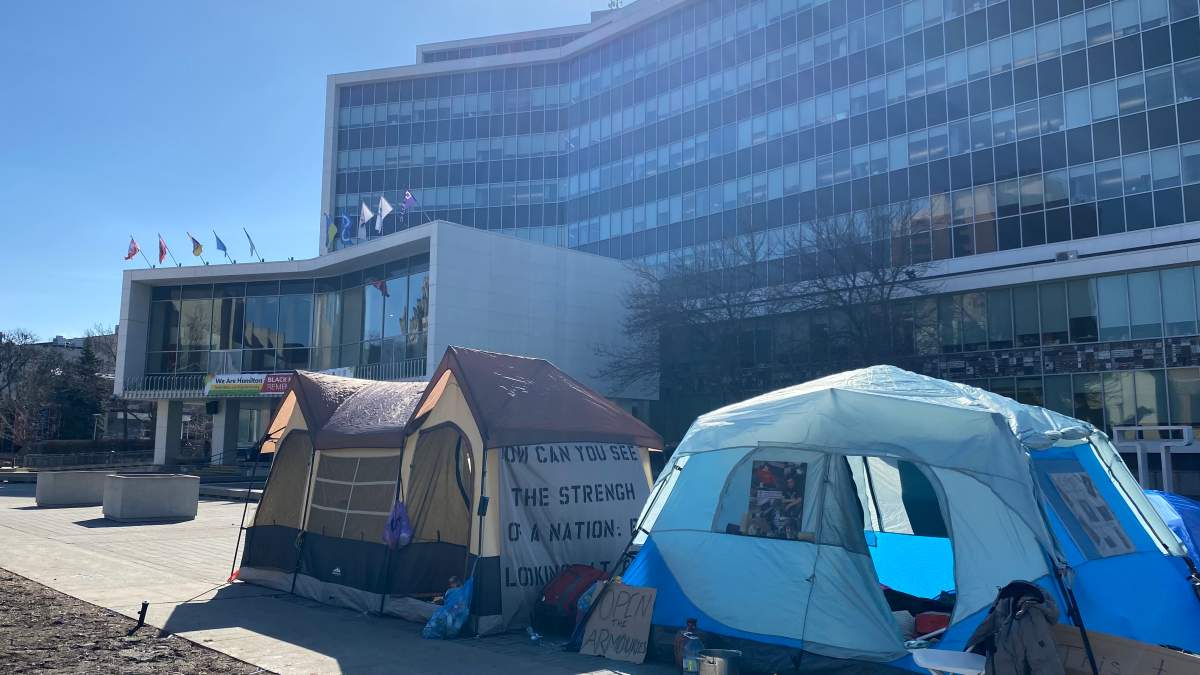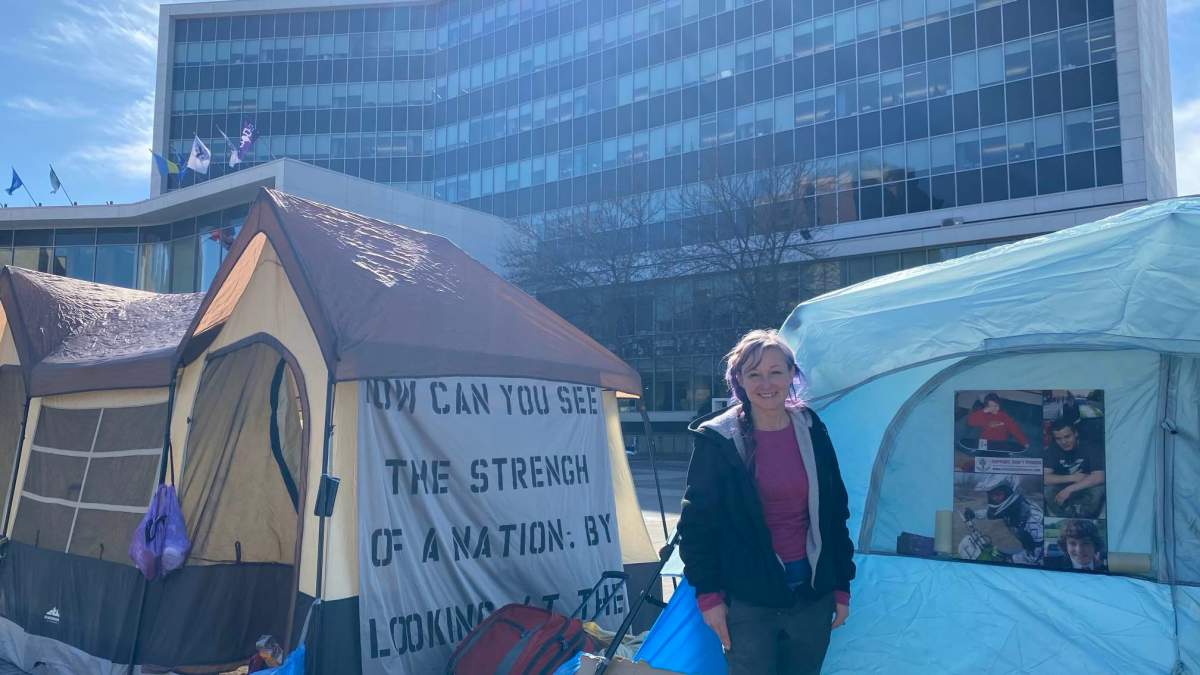The plight of Hamilton’s homeless was on display in front of city hall Monday as several tents were set up in protest of a failed motion last week to build affordable housing on two municipally-owned parking lots.

Poverty advocate Angela Vos said she was furious over the decision and is hoping the display will bring to light what those unsheltered across the city are experiencing.
“I’m furious, to be honest, and I’m just absolutely disgusted because this is not our humanity,” said Vos, who expects to be staying overnight in the setup through until Wednesday.
“This is not who we are supposed to be, so I want them … to know that we’re here and give them the opportunity to join us.”
Last month, Vos called on the federal Ministry of Defence to open up the John Weir Foote Armouries downtown to host a warming centre during a stretch of extreme cold weather.
A tie vote at a general issues committee last week put the proposed parking lot development on Lake Avenue South to create 67 new affordable housing units in limbo.

Get daily National news
It came after a petition, spearheaded by the Stoney Creek BIA, argued the lots at 5 and 13 Lake Avenue were the only ones in the area for parking and deemed critical for nearby small businesses and medical clinics.
Six properties in total were on the list to be developed by non-profits to add 150 permanent dwellings to the city’s affordable housing stock to ease the current housing crunch.
Ward 5 councillor Matt Francis won support for an amendment that had a vote held over and the properties held back until February.
Francis told Global News the move is about protecting jobs, small businesses and giving parking options for those who attend the nearby medical centre and veterans who visit the Royal Canadian Legion.
Mayor Andrea Horwath, who was in favour of developing the Stoney Creek lots, said in a statement last week that there is still an opportunity for council to reconsider as the matter comes before the group Wednesday for ratification.
She was not pleased after the committee vote last week, expressing disappointment in a statement suggesting councillors chose “parking lots over housing people.”
“To be clear, the use of municipal lands for affordable housing is a key part of our Housing Sustainability and Investment Roadmap and we must, as a council, be doing everything we can to get people housed as quickly as possible,” she submitted.
Francis says the “parking over people” narrative is “totally incorrect” and insists an alternative in Stoney Creek’s Riverdale West neighbourhood has been overlooked.
“That could go forward … and provide almost as many affordable housing units for families in a neighborhood that can support it even better than downtown Stoney Creek,” Francis said.
Hamilton has an estimated 1,600 people experiencing homelessness across the city, forcing council to allocate 1.6 per cent of the 2024 tax levy into projects to alleviate housing and homelessness — equating to almost $158 million.
Housing director Michelle Baird told Global News rehabilitation and maintenance of existing affordable housing along with new developments will be a part of the overall strategy that includes supports beyond just a roof over one’s head.
“Providing people a housing unit isn’t the only solution, we need to ensure the supports are there, too, so people are able to stay housed,” Baird said.
The city’s Housing and Homelessness Action Plan, created in 2019, had targeted 2025 as the year the city would end chronic homelessness.
Baird said that will not be happening despite the recent investments saying the city is simply in “a very different place” now than it was a little over four years ago.









Comments